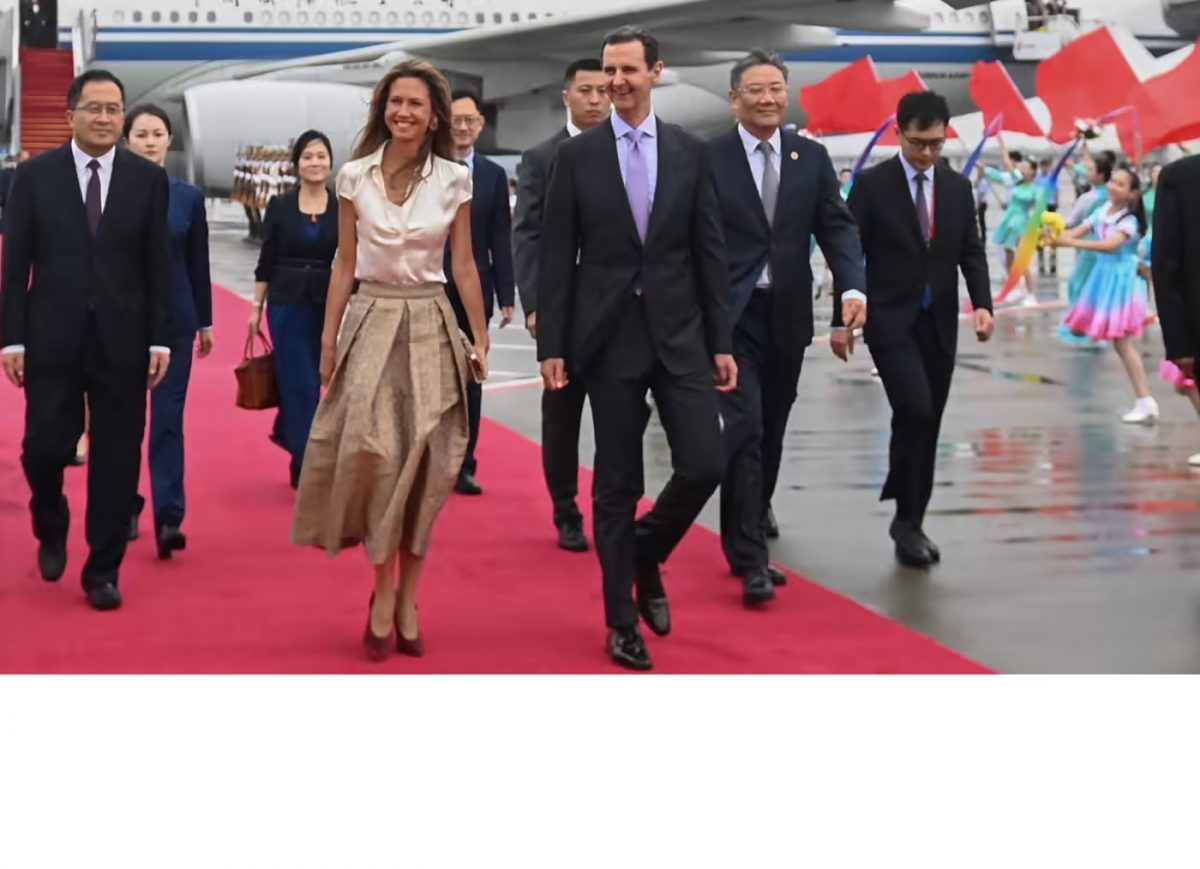BEIJING, (Reuters) – Chinese President Xi Jinping offered today to help Syria rebuild its shattered economy and counter domestic unrest during talks with its long ostracised and heavily sanctioned leader, Bashar al-Assad, by upgrading ties to a “strategic partnership”.
The rare meeting in the Chinese city of Hangzhou boosts Assad’s campaign to return to the global stage while allowing Xi to advance China’s strategic interests in the Middle East, where it is already well aligned with Iran and Saudi Arabia.
“China supports Syria’s opposition to foreign interference, unilateral bullying and is willing to continue to work with Syria in the interests of friendly cooperation and safeguarding international fairness and justice,” Xi told Assad.
China, the world’s second-largest economy, will also support Syria’s reconstruction, Chinese state media reported Xi as saying.
In Chinese diplomacy, a “strategic partnership” implies closer coordination on regional and international affairs, including in the military sphere. It is one grade below what Beijing calls a “comprehensive strategic partnership”.
Western sanctions on Syria have been steadily tightened since the early days of a civil war that began in 2011 with a crackdown on protests and went on to kill hundreds of thousands of people and displace millions.
Assad’s government, backed by Russia and Iran, now controls most Syrian territory and has re-established ties in recent years with Arab neighbours that once backed his opponents.
Syria is now desperately in need of foreign investment for its infrastructure and for reviving various industries. The dire economic situation has triggered protests in southern Syria in which crowds have called for the president’s removal.
However, analysts doubt that China will make any concrete commitments towards helping Syria, as any Chinese or other investment in the country risks entangling an investor in U.S. sanctions under the 2020 Caesar Act that can freeze the assets of anyone dealing with what remains effectively a pariah state.
Chinese investors will also have to consider the country’s poor security and parlous financial situation.
REGIONAL STABILITY
Beijing has stepped up its diplomatic engagement with the Middle East in recent years, and in March helped broker a surprise deal between long-standing regional rivals Saudi Arabia and Iran to end their seven-year diplomatic rift.
Citing flagship initiatives aimed at building up infrastructure along the ancient Silk Road and promoting China’s approach to global security, Xi extended support for Syrian efforts to improve relations with other Arab countries.
“China is willing to strengthen cooperation with Syria through the Belt and Road Initiative… to make positive contributions to regional and world peace and development,” Xi said.
But analysts said there was likely to be a limit to how far Beijing would help Damascus beyond recovering its regional status.
“I don’t think China is committed to Syria enough to lobby for the lifting of multilateral sanctions,” said Matteo Legrenzi, professor of international relations at Ca’Foscari, University of Venice.
“That is not part of China’s role identity in the Middle East, which is to try and have a role without taking sides.”





